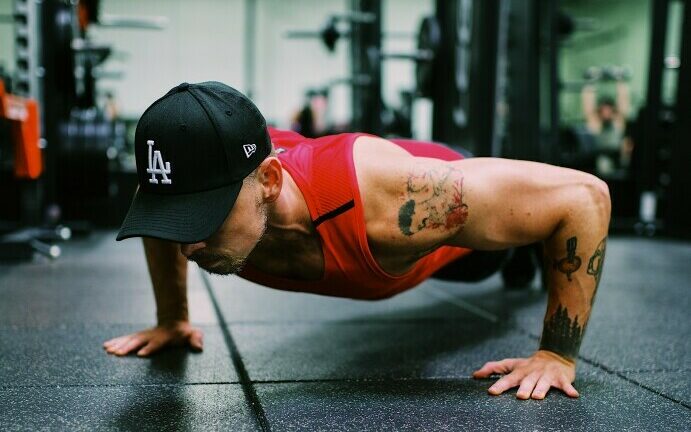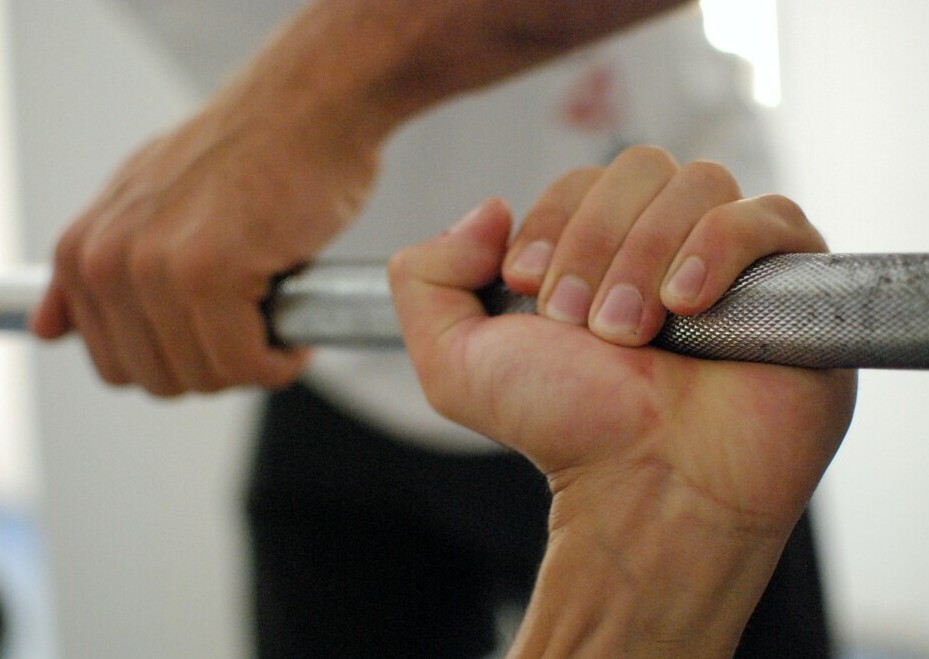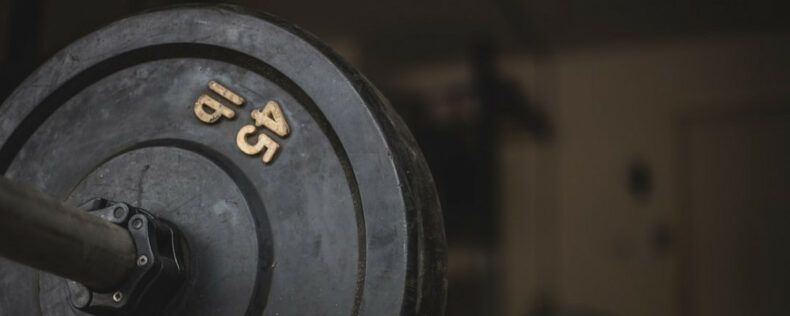Being able to finally bench a plate can be a big milestone for many people. It’s often regarded as the moment when a person unofficially transitions from being a beginner to an intermediate in the gym.
To be clear, benching a plate is common gym terminology for being able to bench press a bar with a 45-pound plate on each end. This means that the total weight you’re benching, including the 45-pound bar, comes to a total of 135 pounds. If that’s something that you have your sights set on achieving, but have been having trouble getting to, here are some tips that may help you finally reach this goal.
In addition, while this post is specifically tailored towards improving your bench press, you can implement these same practices and guidelines to progress with any exercise.
Build Solid Foundations
First and foremost, as I always try to stress, make sure you’re using proper technique that’ll allow you to train safely and effectively. Benching can easily cause injury if not done correctly, which is why it’s of utmost importance that you always keep your form in check. If you try to force more weight onto the bar before you can truly handle it, you’ll be putting yourself at high risk of sustaining a very serious injury.
On a more positive note, however, implementing good form is also useful because you’ll be able to lift more, and lift more effectively. By engaging your core and using your back to support yourself, you’ll lift more weight because you can channel all of your energy into lifting the bar without needing to stabilize your own body. You’ll also target your muscles better because using proper form ensures that you maximize muscle activation in the correct places.
In the end, this all means that you’ll be directing more tension to your chest. Your chest muscles will get stronger more quickly, and as such, you’ll reach the point of benching a plate sooner.
Revisit Your Routine
If you’re having a hard time building your chest muscles through bench pressing, you may want to look for other ways to increase your chest strength instead of solely focusing on this one movement. Yes, benching is a very effective exercise for your chest, but this doesn’t mean it’s the only one.

Incorporate other exercises that exert your chest through varying motions and angles, like chest flys, chest presses, and even push-ups. This will help you more comprehensively work your chest out and develop certain parts of the muscle that might not be engaged as much if you’re just benching.
More exercises also means an increase in your total training volume so that you can train your chest to a greater extent and more rapidly develop your strength in this area.
Something else you should consider is that perhaps your struggles with benching aren’t even related to your chest. Rather, it could be due to weaknesses in other muscles that are also heavily utilized in the exercise. Since benching also recruits your triceps and front delts, if these muscles are comparatively weaker, they could be restricting how much weight you can bench. Therefore, you may want to put more focus into training these other muscles so they aren’t the limiting factors.
Embrace Rest
More isn’t always better. The solution might be that you actually need to bench less frequently and give yourself more rest after every chest workout.
Your muscles don’t grow while you’re training; the process of muscle growth only begins after your workout and usually takes a few days. After you train a certain muscle, you should at least give it 2-3 days to recover and grow before you train it again.
If you’re benching multiple times a week in an effort to grow your chest, this is only creating the opposite effect; by interrupting the recovery process, you’re actually preventing your muscles from getting stronger. All of your training ends up going to waste, and as a result you’ll have a hard time achieving progress.
On top of spacing out your training, you might also benefit from occasionally taking an extended break from any strength training for several days or even a week. This can ensure that all of your muscles have a chance to fully recover and rest from all the lifting you typically do. Whenever I take these kinds of breaks, I often find that I’m immediately able to do more reps and lift more weight upon returning to the gym.
If this is something you want to learn more about, I’ve written a separate post that goes into the benefits of taking breaks from working out, as well as how to properly implement them into your routine without causing muscle loss.
Keep Up the Hard Work
Lastly, stay determined and be patient. Don’t give up, thinking that it’s just not possible. Up until now, you might’ve been progressing pretty quickly with your bench press and increasing the weight every time you did the exercise. But now you’ve been stuck at the same weight for a couple of weeks and are concerned that you’re no longer able to get any stronger.
Frankly, I wouldn’t worry too much. The truth is that every incremental amount of muscle becomes harder to build, and now you might be at the point where you’re beginning to experience this natural slowdown in muscle growth.
Instead of panicking or trying to rush the process, stay patient and persistent. If you’ve gone through the checklist above to ensure that you’re training correctly, and you’re also getting proper nutrition and sleep, you most definitely will continue to build muscle.
A Goal, Not “The Goal”

Being able to finally bench a plate can be a very rewarding feeling; it certainly was for me. However, as much of an achievement as it might represent, you shouldn’t feel pressured to pursue this goal by any means necessary.
The amount of weight you can lift is an easy way to track how much progress you make, but it shouldn’t be the end goal and the only thing you prioritize. In fact, if you become too obsessed with simply trying to lift as much as you can, this can easily lead to bad habits, such as ego lifting, that ultimately thwart real progress.
At the end of the day, working out is about increasing your strength and improving your health, so as long as you’re working towards that, you should feel proud no matter what amount of weight you’re able to lift.

